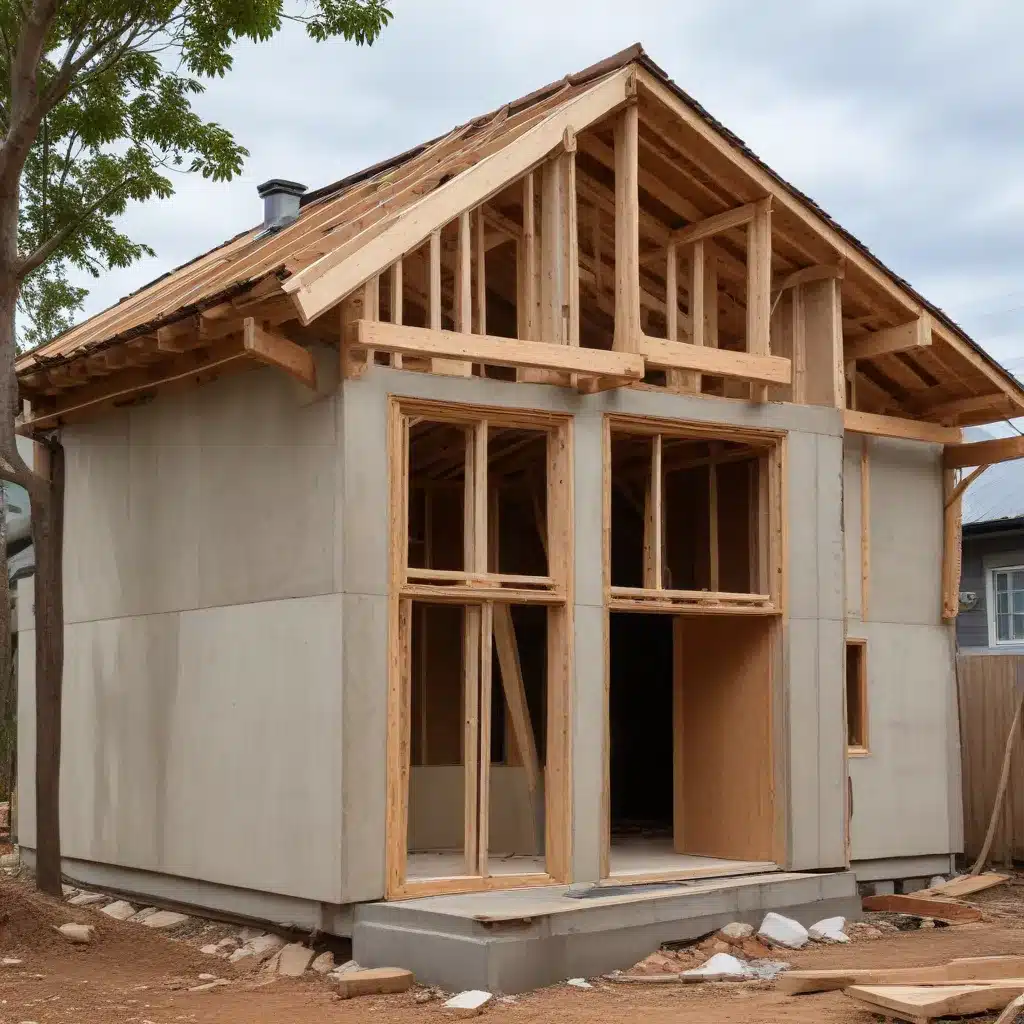
As an experienced home extension consultant, I’ve seen firsthand the growing demand for eco-friendly home improvements that not only enhance your living space, but also reduce your environmental impact. In this article, we’ll delve into the world of sustainable building materials and the innovative financing mechanisms available to make your home extension dreams a reality.
Sustainable Building Materials
When it comes to home extensions, the choice of building materials can have a significant impact on the project’s environmental footprint. Fortunately, there’s been a surge of innovative and sustainable options that allow you to create your dream extension while minimising your carbon footprint.
Renewable Materials
One of the key principles of sustainable building is the use of renewable materials. These are materials that can be replenished naturally, such as bamboo, cork, and timber from responsibly managed forests. Bamboo, for example, is an incredibly versatile and fast-growing grass that can be used for flooring, wall panelling, and even structural elements. Cork is another renewable material that’s gaining popularity due to its excellent insulation properties and natural water-resistant qualities.
Recycled Materials
In addition to renewable materials, recycled materials are also a fantastic choice for sustainable home extensions. Materials like reclaimed timber, recycled plastic, and even repurposed shipping containers can be incorporated into your design to give your extension a unique, eco-friendly flair. Not only do these materials reduce waste, but they also often have a lower embodied energy than their virgin counterparts.
Energy-Efficient Materials
When it comes to home extensions, energy efficiency is crucial. Choosing insulation materials like sheep’s wool, cellulose, or mineral wool can significantly improve your home’s thermal performance, reducing your energy consumption and carbon footprint. Additionally, high-performance windows and doors can help minimise heat loss and gain, further enhancing your extension’s energy efficiency.
Financing Mechanisms
Sustainable home extensions often come with a higher upfront cost, but the long-term benefits in terms of energy savings and environmental impact can make them a wise investment. Fortunately, there are several financing mechanisms available to help make your sustainable home extension a reality.
Green Mortgages
Green mortgages are a growing trend in the housing market, offering lower interest rates or larger loan amounts to homeowners who are building or renovating their homes with energy-efficient and sustainable features. These mortgages are designed to incentivise homeowners to choose more eco-friendly options, making sustainable home extensions more accessible.
Home Improvement Loans
Traditional home improvement loans can also be used to finance sustainable home extensions. Many lenders are now offering “green” loan products with preferential rates for projects that incorporate renewable materials, energy-efficient technologies, or other sustainable features.
Sustainability Grants
Governments and local authorities are increasingly offering grants and subsidies to encourage homeowners to make their homes more sustainable. These can include grants for solar panel installation, energy-efficient retrofits, or even funding for sustainable home extensions. Be sure to research what incentives are available in your area.
Environmental Considerations
When planning a sustainable home extension, it’s important to consider the broader environmental impact beyond just the building materials. Here are a few key areas to focus on:
Energy Efficiency
Maximising energy efficiency is crucial for reducing the environmental impact of your home extension. This can be achieved through effective insulation, passive solar design, and the integration of renewable energy sources like solar panels or heat pumps.
Resource Conservation
Sustainable home extensions should also prioritise resource conservation. This includes measures like greywater recycling, rainwater harvesting, and waste reduction strategies to minimise the project’s overall resource footprint.
Regulatory Frameworks
To ensure your sustainable home extension is compliant and eligible for any relevant incentives or certifications, it’s important to be aware of the regulatory frameworks in place.
Building Codes
Most local authorities have building codes that set minimum standards for energy efficiency, sustainability, and safety. Make sure your extension design meets or exceeds these requirements to avoid any issues during the approval process.
Sustainability Certifications
In addition to building codes, there are also voluntary sustainability certification schemes, such as LEED (Leadership in Energy and Environmental Design) or BREEAM (Building Research Establishment Environmental Assessment Method), that can help validate the eco-friendly credentials of your home extension.
Homeowner Perspectives
As a homeowner, the decision to undertake a sustainable home extension can be influenced by a variety of factors, both practical and personal.
Motivations
Many homeowners are driven to choose sustainable options for their home extensions due to the potential cost savings from improved energy efficiency, the desire to reduce their environmental impact, and the potential for increased property value.
Adoption Challenges
However, the upfront costs of sustainable building materials and technologies can sometimes be a barrier, as can a lack of awareness about the available financing mechanisms and incentives. Finding contractors with the necessary expertise in sustainable construction can also be a challenge in some areas.
Sustainable home extensions offer a fantastic opportunity to enhance your living space while making a positive impact on the environment. By embracing renewable and recycled materials, energy-efficient technologies, and innovative financing mechanisms, you can create a beautiful and eco-friendly extension that will serve you and the planet for years to come.
If you’re considering a home extension and want to explore sustainable options, be sure to visit our home extensions service page to learn more about how we can help. Our team of experts is here to guide you through the process and ensure your project meets the highest standards of sustainability.
















